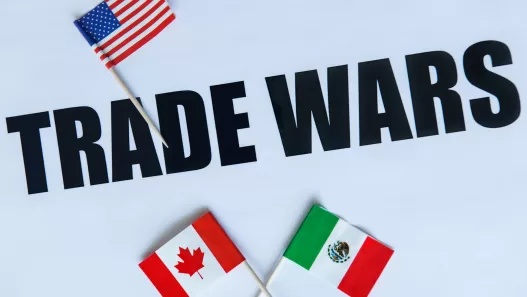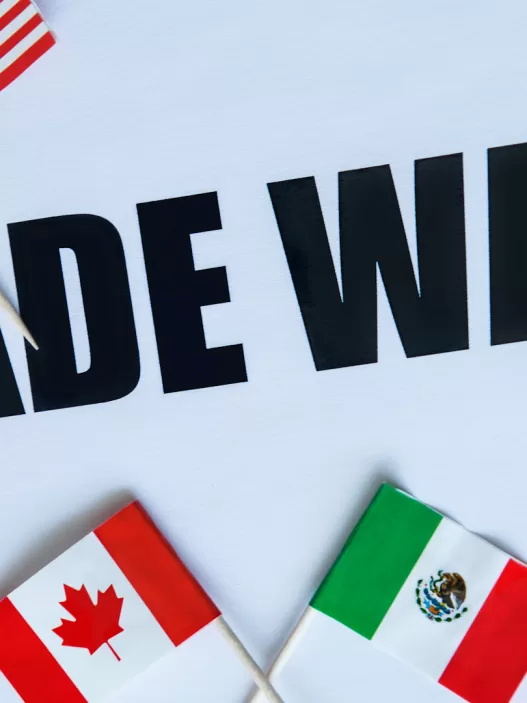
The word tariffs has once again become a hot topic in international trade, as former President Donald Trump has hinted at imposing new tariffs on Canadian imports if he secures re-election. While tariffs are often framed as a tool to protect domestic industries and jobs, the reality is far more complicated.
If Trump follows through on placing tariffs on Canada, the United States will likely suffer more economic damage than Canada itself. From higher prices for American consumers to supply chain chaos and retaliatory trade measures, the consequences of such tariffs could be devastating for the U.S. economy.
Let’s break down exactly why these tariffs would backfire and why they could cripple key American industries more than they hurt Canada.
How Tariffs Work – And Why They Often Backfire
A tariff is essentially a tax on imported goods. When the U.S. places tariffs on Canadian imports, businesses and consumers in the U.S. are the ones who pay the price—not Canada.
Instead of punishing foreign countries, tariffs usually lead to:
✅ Higher costs for American consumers (as importers pass the costs down)
✅ Disrupted supply chains, increasing the price of goods made in the U.S.
✅ Retaliation from Canada, making it harder for U.S. companies to export goods
✅ Job losses in industries that rely on Canadian imports
Despite Trump’s claim that tariffs protect American workers, history has shown that tariffs often do more harm than good—and Canada is no exception.
How Trump’s Tariffs on Canada Would Hurt the U.S. Economy
- Americans Will Pay More for Everyday Goods
Canada is one of the largest trade partners of the U.S., supplying key commodities like:
Oil and natural gas
Lumber and building materials
Automobile parts
Agricultural products (wheat, dairy, seafood)
If Trump slaps tariffs on Canadian goods, prices in the U.S. will immediately rise because businesses will be forced to pay more for imports—and they will pass those costs onto consumers.
🔺 Gas Prices Will Go Up – Canada is the largest exporter of crude oil to the U.S. A tariff on Canadian oil would increase fuel prices nationwide.
🔺 Housing Costs Will Rise – Canada supplies over 80% of softwood lumber used in U.S. home construction. A tariff means higher costs for builders—and more expensive homes for buyers.
🔺 Cars Will Become More Expensive – The U.S. and Canada share auto supply chains, meaning even American-made cars rely on Canadian parts. Tariffs would increase car prices across the board.
Simply put, American families will bear the brunt of these increased costs while Canada will continue selling its goods to other international buyers.
- Canadian Retaliation Will Hurt U.S. Businesses
The biggest mistake in imposing tariffs on Canada is assuming there will be no retaliation.
🇨🇦 Canada has already promised to strike back with counter-tariffs, which could make it harder for U.S. businesses to export goods north of the border.
🔹 American farmers would suffer if Canada imposed tariffs on U.S. agricultural exports like soybeans, corn, and beef.
🔹 U.S. manufacturers that export to Canada would see declining sales as Canadian buyers seek cheaper alternatives elsewhere.
🔹 The U.S. tech industry, which relies on Canadian partnerships, could see increased costs and regulatory hurdles.
Instead of boosting the American economy, these tariffs could create a lose-lose scenario where both countries suffer, but the U.S. takes a harder hit due to its dependence on Canadian imports.
- U.S. Jobs Will Be Lost—Not Saved
Trump’s tariffs on China failed to bring manufacturing jobs back to the U.S., and tariffs on Canada will be no different.
❌ Industries that rely on Canadian imports will suffer
❌ Businesses will struggle with higher material costs
❌ Job losses will hit sectors like construction, auto manufacturing, and agriculture
While Trump claims that tariffs help American workers, they often do the opposite—especially when it comes to jobs tied to supply chains connected to Canada.
Instead of bringing jobs back, tariffs will likely result in layoffs and business closures, particularly for small businesses that can’t afford rising costs.
- Canada Has Other Buyers—The U.S. Doesn’t
Another crucial mistake in Trump’s tariff strategy is assuming that Canada needs to sell its goods to the U.S.
🔹 Canada has already been diversifying its trade partners, signing agreements with Europe, Japan, and other global markets.
🔹 If the U.S. becomes a difficult trading partner, Canada will simply shift exports elsewhere.
🔹 The U.S., however, has fewer alternatives to Canadian goods—especially oil, lumber, and auto parts.
While Canada can find new buyers, the U.S. will struggle to find new suppliers. This means American businesses and consumers will continue to suffer long after the tariffs are imposed.
What Would Be a Better Approach Than Tariffs?
Instead of harming U.S. consumers and businesses with tariffs, here’s what Trump (or any future U.S. president) should focus on:
✔️ Strengthen U.S.-Canada Trade Agreements – Improving trade relations would benefit both countries, rather than forcing them into a trade war.
✔️ Encourage Domestic Production Without Tariffs – If the goal is to bring jobs back, the U.S. should invest in manufacturing, infrastructure, and workforce training—not punish its closest ally.
✔️ Work With Canada to Lower Costs – Cooperation, not conflict, will ensure lower prices for consumers and a stronger North American economy.
Final Thoughts: Trump’s Tariffs Will Hurt the U.S. More Than Canada
If Trump follows through with tariffs on Canada, the real loser won’t be Canada—it will be the American economy.
📉 Prices for gas, food, and housing will go up
📉 U.S. businesses will struggle with supply chain costs
📉 Jobs will be lost, not created
📉 Canada will find new buyers—but the U.S. won’t find new suppliers
Instead of playing economic hardball with America’s largest trading partner, the U.S. needs to find smarter ways to strengthen its industries—without crippling its own economy in the process.
What do you think? Would tariffs on Canada help or hurt the U.S.? Let us know in the comments!
Stay Updated on Trade & Economy News!
📢 Follow us for more insights on global trade!
💬 Join the discussion—should the U.S. place tariffs on Canada?
📩 Subscribe to our newsletter for more in-depth analysis!
Until next time—let’s talk trade! 💼📊
















